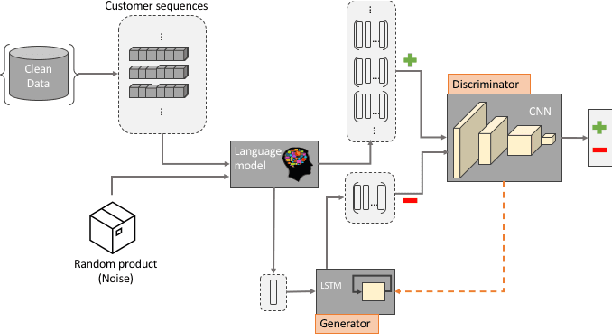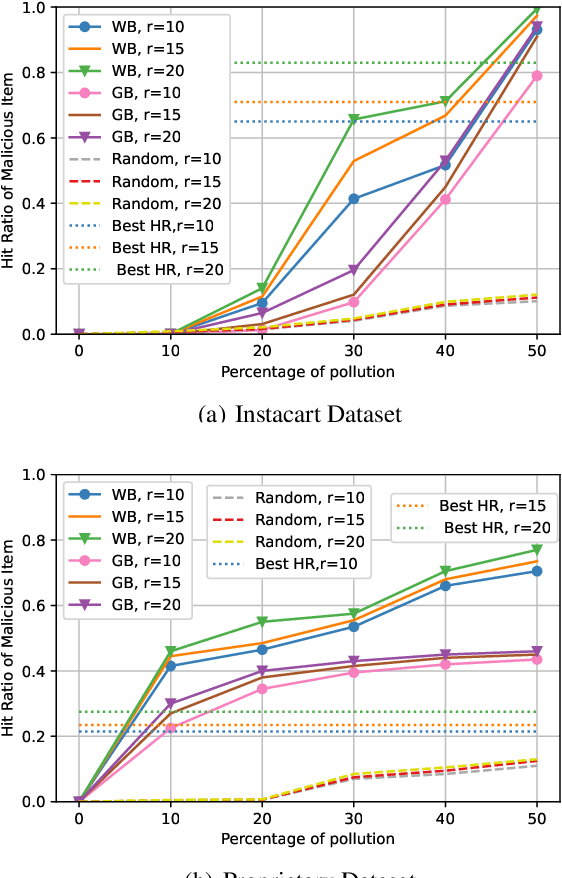On Detecting Data Pollution Attacks On Recommender Systems Using Sequential GANs
Paper and Code
Dec 04, 2020



Recommender systems are an essential part of any e-commerce platform. Recommendations are typically generated by aggregating large amounts of user data. A malicious actor may be motivated to sway the output of such recommender systems by injecting malicious datapoints to leverage the system for financial gain. In this work, we propose a semi-supervised attack detection algorithm to identify the malicious datapoints. We do this by leveraging a portion of the dataset that has a lower chance of being polluted to learn the distribution of genuine datapoints. Our proposed approach modifies the Generative Adversarial Network architecture to take into account the contextual information from user activity. This allows the model to distinguish legitimate datapoints from the injected ones.
 Add to Chrome
Add to Chrome Add to Firefox
Add to Firefox Add to Edge
Add to Edge